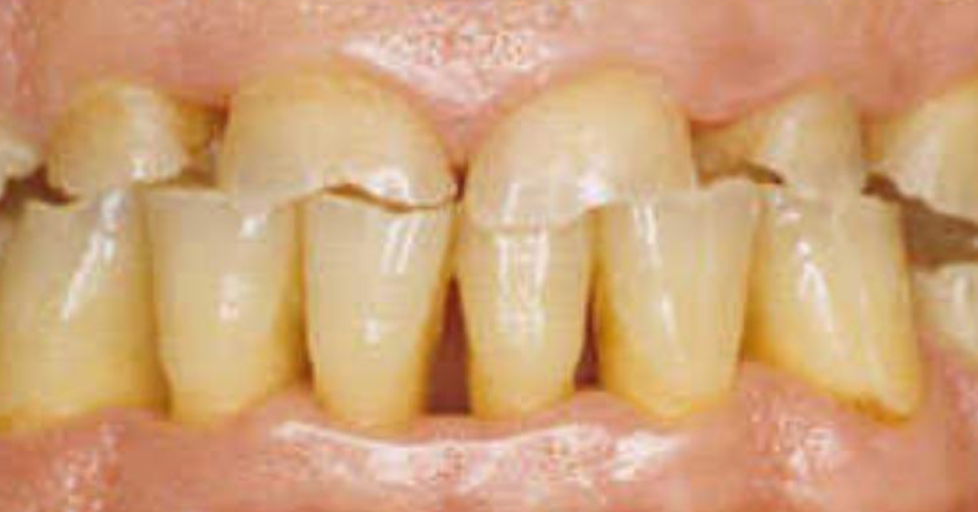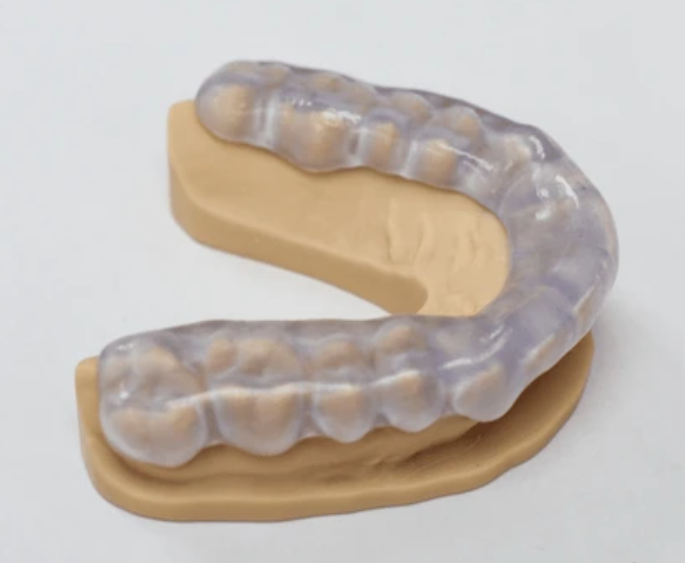
Do you wake up with jaw pain or headaches? Have you noticed excessive wear on your teeth or unexplained sensitivity? You could be grinding your teeth without even realizing it! This condition, known as bruxism, is surprisingly common and can lead to serious dental problems if left untreated.
At Pure Bliss Dental Care, we help patients identify and manage teeth grinding to protect their smiles. In this blog, we’ll discuss what causes bruxism, the warning signs to look out for, and how to prevent long-term damage to your teeth.
What Causes Teeth Grinding?
Bruxism can occur while you’re awake (awake bruxism) or during sleep (sleep bruxism). Common causes include:
1. Stress & Anxiety
One of the biggest triggers for teeth grinding is stress. Many people clench or grind their teeth as a subconscious response to tension, whether they’re working, driving, or sleeping.
2. Sleep Disorders
Bruxism is often linked to sleep issues, such as snoring, sleep apnea, or disrupted sleep patterns. If you or your partner notice loud grinding sounds at night, you may need a dental evaluation.
3. Misaligned Teeth (Malocclusion)
If your teeth are not properly aligned, your jaw muscles may overcompensate, leading to clenching and grinding.
4. Caffeine & Alcohol Consumption
High caffeine intake (from coffee, energy drinks, or soft drinks) and alcohol can increase muscle activity at night, making teeth grinding worse.
5. Certain Medications & Lifestyle Habits
Some medications, especially antidepressants, have been linked to increased bruxism. Additionally, smoking and recreational drug use can contribute to clenching and grinding.
Signs & Symptoms of Bruxism
Teeth grinding can go unnoticed, especially when it happens during sleep. Here are some common warning signs:
✅ Worn-down teeth – Your teeth may appear shorter, flatter, or have small cracks.
✅ Increased tooth sensitivity – Grinding wears down enamel, leading to sensitivity to hot or cold foods.
✅ Jaw pain or soreness – Persistent tension in your jaw muscles may indicate grinding.
✅ Headaches or earaches – Frequent morning headaches or ear pain (without infection) could be related to bruxism.
✅ Clicking or popping jaw – This can be a sign of temporomandibular joint (TMJ) issues caused by prolonged grinding.
✅ Disturbed sleep – If you or your partner notice grinding noises at night, you may have sleep bruxism.
If you experience any of these symptoms, it’s important to get a professional evaluation before the condition worsens.
How Bruxism Affects Your Dental Health
Ignoring teeth grinding can lead to serious oral health problems, including:
🚨 Tooth fractures & chipping – The constant pressure from grinding can weaken enamel and cause cracks.
🚨 Receding gums & gum damage – Excess force can strain your gums, leading to gum recession and increased sensitivity.
🚨 Temporomandibular Joint Disorder (TMD/TMJ issues) – Grinding can put excessive strain on your jaw joint, leading to pain, stiffness, and difficulty opening or closing your mouth.
🚨 Tooth loss – Severe cases of untreated bruxism can damage teeth to the point where extractions may be necessary.
How to Prevent and Treat Teeth Grinding
The good news? Bruxism is treatable! Here’s how we can help:
1. Custom-Made Night Guards (Occlusal Splints)
One of the most effective solutions for sleep bruxism is a custom night guard. This is a protective dental appliance worn while sleeping to cushion your teeth and reduce the pressure from grinding. Unlike over-the-counter mouthguards, custom night guards are made to fit your bite perfectly, providing better protection and comfort.
2. Stress Management & Lifestyle Changes
Since stress is a major cause of bruxism, finding ways to relax can help reduce clenching and grinding. Try:
✅ Deep breathing exercises & meditation
✅ Limiting caffeine & alcohol before bed
✅ Establishing a relaxing nighttime routine
3. Correcting Bite Issues
If misaligned teeth are causing your bruxism, orthodontic treatment (such as clear aligners or braces) may help correct the issue.
4. Treating Sleep Apnea
If your grinding is linked to sleep apnea, a sleep study may be necessary to determine if a CPAP machine or dental sleep appliance could help improve your breathing and reduce grinding.
5. Regular Dental Check-Ups
Routine check-ups allow us to detect early signs of grinding and prevent long-term damage. If you’re experiencing symptoms of bruxism, book an appointment at Pure Bliss Dental Care today.

Teeth grinding is more than just an annoying habit—it can have serious long-term consequences for your teeth and jaw. The sooner you take action, the better you can protect your smile from damage.
At Pure Bliss Dental Care, we offer custom-made night guards and personalized treatment plans to help manage bruxism. Call us today at 07 3341 0049 to schedule a consultation and keep your smile safe!





